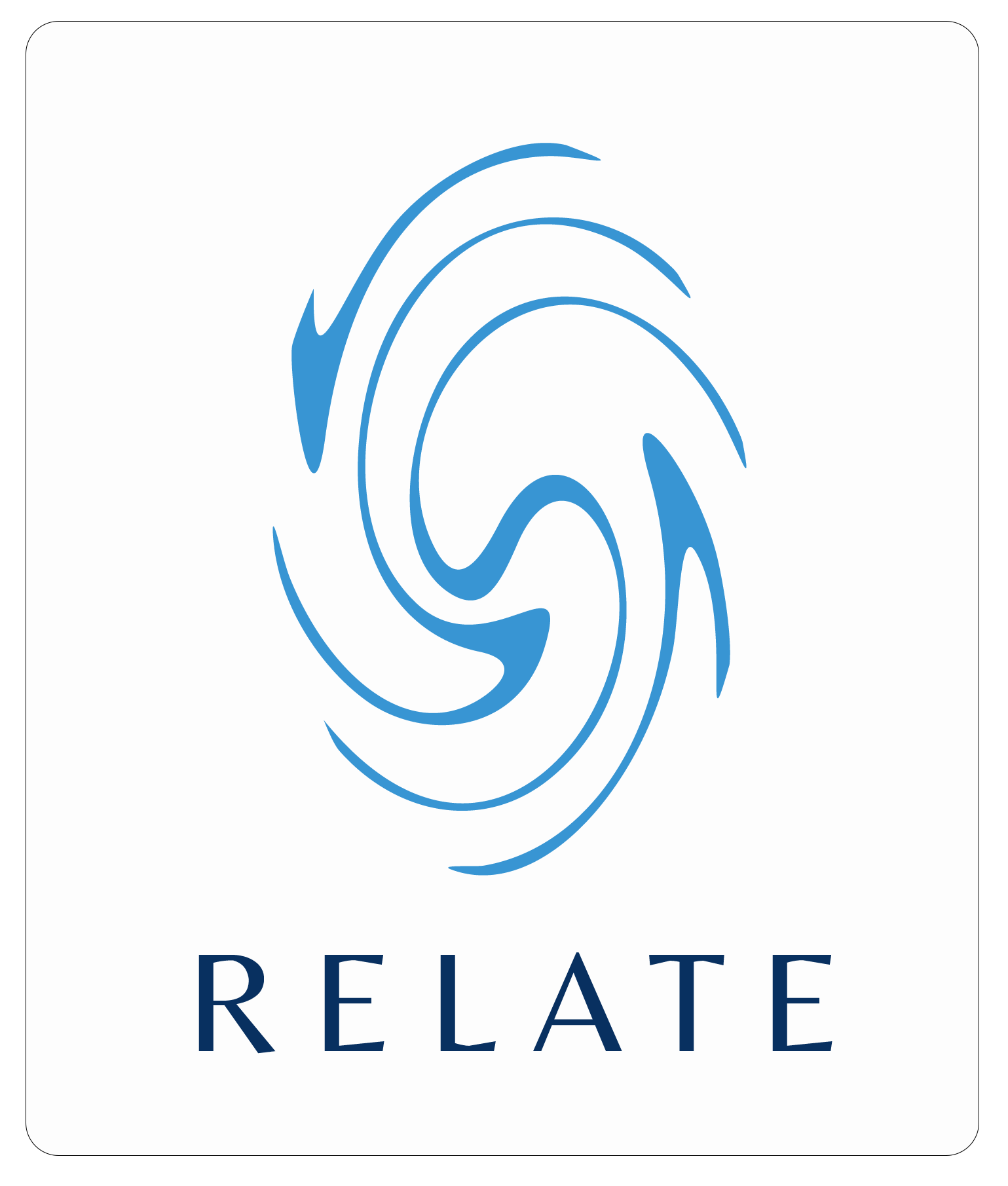Mastering the Art of Non-Confrontational Communication in Your Relationship
In today's time of hustle and hurry, making things work in a good relationship takes effort, understanding, and most importantly– presence. Often, at moments of arguing or conflict, communication often becomes an act of confrontation; this allows for misunderstandings to occur and emotional distance to set in. However, you can learn the necessary skills to handle tough conversations in a way that draws you and your partner closer together rather than pushing apart.
This article explores conflict-free communication, the role of presence in relationships, and how you can utilise these approaches to reinforce your bond. Whether you seek ways to better your communication skills or help from relationship counselling this guide offers some very practical, tangible insights to help make your relationship grow.
What is Non-Confrontational Communication?
Non-confrontational communication is a method through which issues and conflicts in the relationship are brought up without aggression, blame, or defensiveness. It focuses on the feelings being conveyed to invite discussion and working together rather than to provoke an argument. Presence, active listening, and empathy are some of the tools available to couples as they work through challenging conversations in a manner that keeps emotional safety and respect between each other.
When couples learn how to communicate non-confrontationally, problems get solved more effectively, and an emotional bond develops way better. This kind of communication plays a great role in keeping the relationship healthy and long-lasting.
The Importance of Non-Confrontational Communication in Relationships
Conflict in relationships does exist, but how you communicate during those times will either strengthen or come between them. Non-confrontational communication is simply one step towards improving communication in a relationship. This involves open and respectful dialogue where both partners feel heard and valued.
Non-confrontational communication prevents tension, misunderstandings, and hurt feelings if done regularly, while building emotional closeness. Being present, active listening, and non-judgmental speaking about one's thoughts and feelings are the keys to successful communication.
The Essence of Presence in Relationships
Presence is the foundation of any good communication. It is being fully there, mentally and emotionally, when communicating with your partner from the "I Thou" philosophy, which insists on full attentiveness with mutual respect.
Where relationships are concerned, it is not a question of the body being present. It is about being present emotionally: deep listening and responsiveness with empathy. This allows for more open, authentic conversations that can bridge emotional gaps and create deeper intimacy.
How Do I Master Non-Confrontational Communication in My Relationship?
Mastery in non-confrontational communication does not come about overnight. It takes patience and practice to be able to be wholly present with your partner, with a reflective ear and thoughtful response. Let's dive into specific steps you can take to master this vital skill.
Engaging the Body: The Role of Non-Verbal Communication
The most effective non-confrontational communication often begins with non-verbal communication. Body language is very important and plays a great role in setting the tone for any interaction. Leaning forward, making eye contact, and showing with your posture that you are attentive are ways to show that you are engaged.
This engagement taps into what experts call the "baby brain," the part of our instincts that responds to body language. When the couples are physically in tune with each other, they create an intimate connection that strengthens the verbal exchange. These subtle actions often serve as powerful tools in relationship counselling courses focused on improving communication dynamics.
The Emotional Connection: Engaging the Child Brain
Besides the physical presence, emotional presence counts just the same. When one is feeling vulnerable or there is some kind of conflict going on, this helps to lessen tension and creates a feeling of safety. This psychologically reaches out to the "child brain"- the part in us that always needs validation and connection.
It provides emotional security when one listens with empathy, reflects the emotions of one's partner, and validates feelings. Couples who can dive into each other in emotional experiences, such as sharing joy or pains from the past, develop a deeper and more resilient connection. One of the crucial variables that improve communication in a relationship is emotional presence.
Intellectual Engagement: Sharpening Your Mind
Another level of presence can certainly be described as intellectual. The action of thinking together, considering ideas, and engaging in a mentally stimulating conversation gives both partners a feeling of mental connection. Many times, with any form of communication that is oriented toward presence, there is also mental stimulation through which both partners are commonly urged to think critically and candidly about their relationship.
More intellectual couples may, through therapy, find it perhaps a bit more difficult in the beginning to perceive the emotional underpinnings of their conflicts. It is when they begin engaging their intellectual side with an open heart that many find breakthroughs in their relationship dynamics.
Alignment of Body-Mind-Emotion: The Key to Harmonious Communication
When body, mind, and emotion all align in presence, there is harmony in the communication between the couples. This allows for fluid conversations in which both feel understood and supported.
In time, this will become instinctive: practising presence and non-confrontative communication skills. Couples learn to check in with themselves and with their partner frequently to make sure they keep communicating in a manner that feeds the relationship. In such stages, many couples feel structured guidance is not necessary as they develop all the tools to keep the dialogue between them healthy and respectful.
Non-Confrontational Communication Skills for a Healthier Relationship
Non-confrontational communication is talking through concerns and conflicts without fueling the flames. Here are some practical techniques that may help you navigate those conversations without damage:
1. Use "I" statements
One of the cornerstones of non-confrontational communication is using "I" statements instead of "you" statements. Example: Instead of, "You never listen to me," try, "I feel unheard when I'm sharing my thoughts." This will take the blame off and place it onto your feelings, which will help decrease defensiveness from your partner.
2. Practise Active Listening
Listening is as important as talking. Active listening means paying full attention to your partner, not interrupting, and not mentally preparing what you will say. Reflecting back to your partner and what she says will show you understand her perspective. "So, you're feeling hurt because you felt abandoned today?” is one example.
It is in active listening that trust is cultivated, and communication is improved because both partners feel heard and validated.
3. Keep Your Emotions in Check
Maintaining non-confrontational communication depends on keeping calm when arguments are heated. If feelings are running high, take a few minutes out to breathe and then collect your thoughts. This way, with both partners being calm, conversations become more productive and less argumentative.
Learning to manage your emotions and how to help your partner manage theirs, will do much to enhance conflict-free communications.
4. Avoid Blame and Criticism
Criticism only brings on defensive reactions. Rather, place the blame on how it makes you feel, and what you can do together to solve the problem. Whereas an accusation like "You never help around the house" will surely be met with resentment, rephrasing it like "I feel overwhelmed by the chores; I'd love some help" invites collaboration.
5. Neutral Language
First of all, one needs to establish neutral, non-judgmental language. Words hurt, and framing your concerns in a more cautious way will help keep misunderstandings at bay. Rather than using lines that may attack your partner, such as "You don't care about my opinion," you can simply say, "I'd like to understand your perspective on this."
Practical Tips for Everyday Application
While mastering these skills can take time, there are simple practices you can implement daily to start fostering a more peaceful dynamic in your relationship. Here are a few tips:
- Take a Break: When feeling that tensions are mounting, stop and take one or two deep breaths to collect your thoughts before responding.
- Lean In: Lean physically and emotionally into your partner's world, giving all attention to what is being shared.
- Create Time for Presence: Allow time to spend with your partner when you are there with them and not distracted by life, phones, or other work-related things.
You will enhance your relationship and improve your communication significantly by incorporating these little yet effective actions into your daily routine.
Advantages of Non-Confrontational Communication in the Long Run
The bottom-line benefit to incorporating non-confrontational communication into your relationship will indeed go beyond just the resolution of an immediate conflict. Non-confrontational communication also makes couples feel closer, more connected, and more satisfied in their relationships. This is one way of building emotional resilience in the relationship to equip it for future challenges.
At Relate, we teach such skills to couples through our relationship counselling courses: teaching presence, empathy, and non-confrontational communication. Whether you wish to firm up your relationship bond or are seeking concrete answers to issues that trouble you, our expert-led courses will modularly fill you with all the tools you require to enjoy long-lasting success.
The Role of Relationship Counselling in Non-Confrontative Methods of Communication Skills
If one finds it hard to initiate these communicating strategies on one's own, relationship counselling in Auckland is professional help that can be provided. It helps couples trace the roots of the problem in communication and develop new ways of communicating to achieve understanding and connection.
Counselling has a number of advantages:
- Guided Practice: It is also possible to have therapists lead the couples through exercises to enhance non-confrontational communication and presence.
- Safe Space for Open Dialogue: Counselling allows for a neutral environment wherein both partners in the relationship can express concerns without feeling judged.
- Personalised Feedback: A couple gets personalised advice and feedback that deals with exactly what their unique pattern of communications is.
Taking a Course in Non-Confrontational Communication
While it takes a lifetime to continuously improve your communication skills, commitment to bettering your relationship may mean taking classes in relationship counselling on non-confrontational communications. Classes such as these will arm you with real and, more importantly, effective ways to reach your partner in a more positive light and help create a better, happier relationship.
What to Expect from a Relationship Communication Course
- Interactive Session: The classes entail role-playing with non-confrontational dialogue between couples in real time.
- Direct Expert Guidance: Counsellors provide direct personal feedback on one's communication style and encouragement to develop further.
- Continuous Support: Many classes also provide additional resources that can be utilised outside of the classroom setting to help reinforce new ways of communication.
Whether one is only starting to work on a relationship or looking to deepen an already strong connection, learning ways to communicate non-confrontationally changes everything.
Start Practising Presence Today
Remember the aliveness of your early days together, the excitement of being fully present with each other? This can be rekindled with the use of presence in everyday interactions. It is a skill to be developed in order to connect your relationship on a higher magnitude and create much-improved communication.
At Relate, we have courses and resources to help couples develop these important skills. Whether through face-to-face relationship counselling in Auckland or through our online relationship counselling courses, we are here to support you on your journey to more harmonious communication.
Presence-Oriented Communication in Relationship Counselling
Presence is a core principle in all relationship counselling and is potentially a transformative practice into which the couples are introduced. In being present with each other, the couples learn to listen with empathy, solve problems calmly, and build emotional intimacy.
The presence-oriented couples therapy (PORT) concerns the 'slowing down' of the conversations when one is talking without being interrupted, and it allows the other to express themselves without any form of interruption. This form of therapy in couples teaches them how to remain present during hard conversations, which ought to be emotionally safe and worthy of trust.
Presence-Power and the Key to Thriving Communication
Non-confrontational communication and presence are cornerstones in the art of forming healthier, better relationships. You'll be able to manage conflicts and create deeper intimacy by simply being present: physically, emotionally, and intellectually. Through active listening, emotional management, and neutral language, you will gain the ability to change the character of how you converse and develop a more peaceful and satisfying partnership.
Communicating is the heart of any relationship– at Relate we believe this. Keen to strengthen your bond? Join Relate's School for Love and start practising presence today! Discover how mindful moments with your partner can bring back the excitement and closeness you crave. Don't let distance creep in – enrol now and learn techniques to stay present, engaged, and deeply in love.






